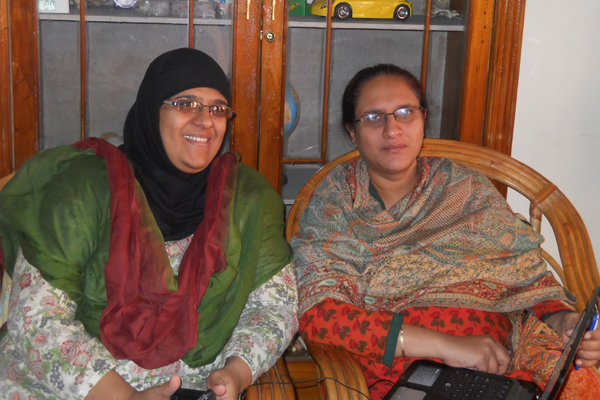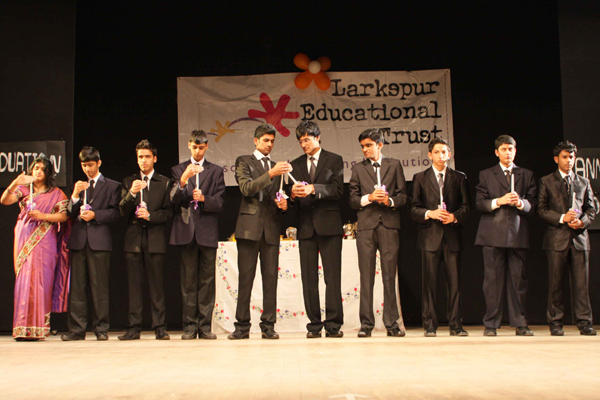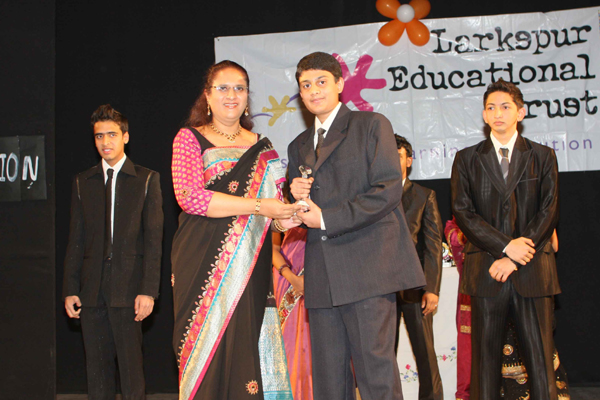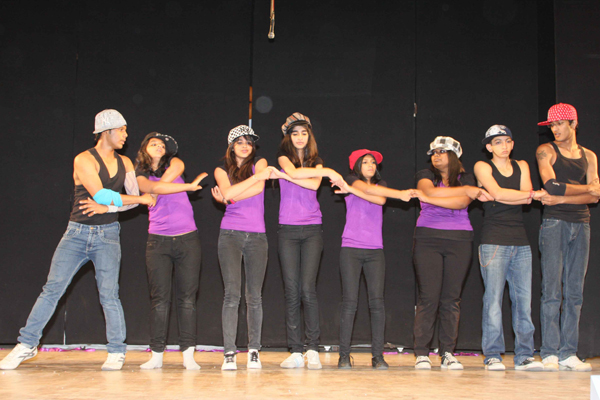
The day that Husna discovered that her friend’s daughter, who was then in the second standard, was dyslexic, she decided to dedicate her life to making the lives of such children easy.
Dyslexia is a very broad term, defining a learning disability that impairs a person's fluency or comprehension accuracy in being able to read. Dyslexia is the most common learning disability.
Husna was a home-maker, leading a quiet life taking care of her three children. But when she discovered that her friend’s daughter was dyslexic and required special help, it changed her life completely. She decided to do whatever she could to help the girl. She first equipped herself with the necessary skills, enrolling for a course for working with dyslexic children conducted by the Karnataka Parents Association for the Mentally Retarded. Then, she worked with the Spastics Research and Diagnostic Centre in Bangalore, did a one-year counseling course and also completed her B.Ed. In 2004, along with her sister Sanober, she set up the Larkspur Educational Trust, a school for dyslexic children. Beginning with nine students, today the school has 40 children on its rolls, both boys and girls. Located in a quiet residential area, the school is creatively designed, conducive for study and small group interaction.
About 10-15 percent of all school-going children suffer from dyslexia or related learning disabilities. This becomes particularly evident in their educational performance in Maths or language related areas. “These students are normal, intelligent children and should not be termed as lazy or dumb. Sadly, awareness of this problem in our country is still in its infancy,” says Husna. “Educational institutions that cater to children with dyslexia and adapt the learning processes to their needs are few. The demand for their services far exceeds the resources and services available.”
“
Parents often get frustrated and angry with such children if they do not get high marks in school, which is generally because they suffer from a learning problem, which, in turn, can lead to major psychological problems. Their often poor school performance in schools that are not sensitive to their condition should be seen as a symptom reflecting a larger underlying problem. They need special love and attention, and their special skills need to be appreciated,” Husna adds.

Larkspur Educational Trust is one of the few personalized learning institutions for dyslexic children in Bangalore, and one of the best. It offers its students the opportunity to complete their schooling through the NIOS (National Institution of Open Schooling). Explaining the advantages of this system, Husna says that it provides flexibility to the children to choose subjects according to their preference. “The open learning system is child-centred, instead of curriculum centred. Exams are conducted twice a year by the NIOS and the NIOS certificate is recognized for admission by the Pre-University Board,” Husna relates.
In addition to the regular school hours, the school provides remedial classes and counseling by appointment. In contrast to regular schools, Larkspur provides for close and loving interaction between teachers and students. “A teacher-student ratio of 1:8 ensures that our qualified special educators understand each student’s requirements. This fits in with our aim to encourage students to study at their own pace.” explains Husna.
“Larkspur provides holistic education to children with dyslexia and adapts the curriculum to the child and not vice-versa,” Husna says. Additionally, the learning environment at Larkspur nurtures all-round development of the children. The closely-knit community of teachers, students and parents is crucial in helping the children realize their potential. Students are encouraged to participate in games and practise craft, music and computer science. The teaching methods used bring the children on par with their peers and contribute significantly to their self-confidence.
The visitor to the school is welcomed by the sound of chattering young voices that forms a happy background buzz. Some students are busy at their studies, others with practicing for a drama or simply having fun. There is a palpable feeling of joy and contentment. What a stark contrast to the stern, indeed frightful, atmosphere of my school, I could not help thinking! Here, students who have struggled in mainstream schools, discouraged, filled with self-doubt, fear and guilt for their seeming failure and neglected by teachers who could not understand their special needs or skills, are blossoming into creative and joyful young people! At Larkspur, they enter a space which is truly their own. There is no judgment, no comparison, just a calm acceptance.

Instead of dinning the students’ heads with onerous texts, classes at Larkspur are discussion-centred. A day for the students at Larkspur begins with discussions on current affairs. Newspaper reports are analysed and students set about expressing their views orally or in writing. This may sound simple enough, but its effects are amazing. Studying, questioning, analyzing and expressing their own views in this way builds up the children’s self-confidence. As they get more articulate, they learn to relax in class. Overcoming the fear of classrooms, which dyslexic students often face in ‘mainstream’ schools, is a huge step in the receptive learning process that they go through. Husna adds that the system of education at Larkspur involves practical, hands-on experience. “So whether it is a visit to the bank to learn about filling in a form or a visit to the bus-stop or a cheerful session in the kitchen baking a cake, we give much importance to the experiential,” she stresses.
Larkspur is the name of a beautiful flower and, to me, it suggests an open heart and ardent commitment: an apt description of the school and the love that drives Husna, Sanober and their colleagues. Truly, the children at Larkspur will one day face the world with an open heart, full of love, just like little Larkspur flowers!
(Husna F. Rahaman can be reached at: [email protected] or [email protected])







Comments
Add new comment